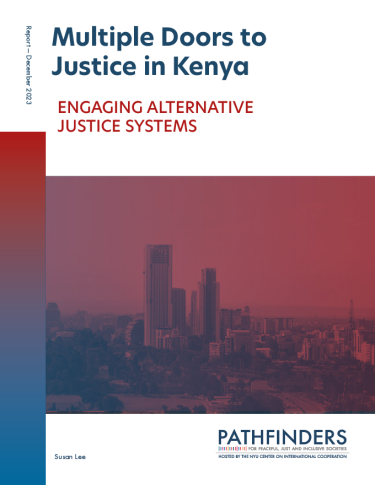Multiple Doors to Justice in Kenya: Engaging Alternative Justice Systems

People-centered justice means putting people and their justice needs at the center of justice systems and services. This entails broadening the pathways through which justice problems may be solved, improving the quality of peoples’ justice journeys, and investing in justice to prevent as well as resolve justice problems. Designing people-centered justice journeys also requires us to empower people and communities to act to prevent and address injustices while ensuring access to services by simplifying processes, supporting alternative pathways, and tailoring services to needs.
This report profiles the development and implementation of Kenya’s Alternative Justice Systems (AJS) Policy to capture and share good practices from this people-centered approach. Through a review of relevant literature and interviews with key stakeholders from government, civil society, and development partners, this paper:
- Briefly covers historical and sociopolitical context from which the AJS Policy arose;
- Details the AJS Policy framework;
- Examines impacts and challenges in the early stages of policy implementation; and
- Highlights key takeaways for other countries and stakeholders interested in engaging customary and informal justice systems.
It further explores Kenya’s experiences to provide governments, judiciaries, development partners, and civil society stakeholders ideas for integrating people-centered justice approaches in their own contexts.